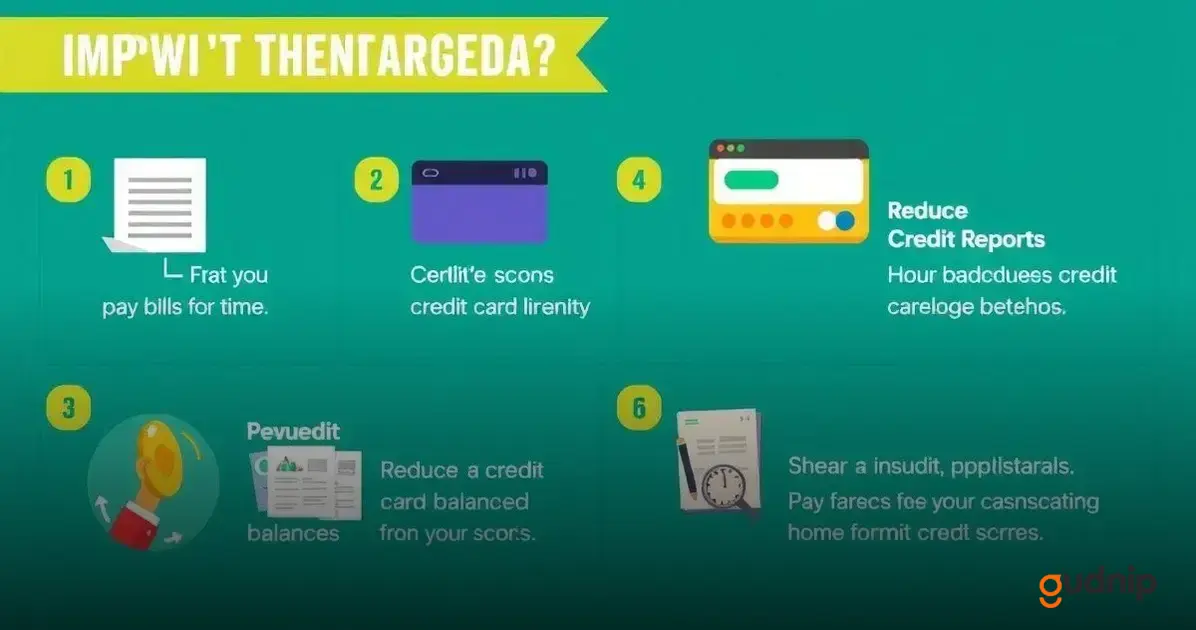When considering credit score requirements for loans, it’s important to recognize that these scores reflect your financial trustworthiness.
Lenders look at your payment history, outstanding debts, and length of credit history to determine the risk involved in lending to you.
A higher credit score generally indicates you are a lower-risk borrower.
Different types of loans have varying criteria.
For example, a conventional mortgage usually requires a credit score of at least 620, while government-backed loans, like FHA loans, may accept scores down to 580.
Understanding these differences helps you know what you need to work towards for loan approval.
Improving your credit score can open more doors to better loan options and lower interest rates.
Simple actions like paying your bills on time, keeping credit card balances low, and regularly checking your credit report for errors can help.
Even small changes can significantly impact your score, allowing you to qualify for loans that fit your financial needs.
When applying for a loan, one crucial factor lenders consider is your credit score.
Understanding the credit score requirements for loans can help you prepare and improve your chances of approval.
Understanding Credit Scores
Understanding credit scores is essential for anyone looking to apply for a loan. A credit score is a number that reflects how well you manage your money.
It is based on your borrowing history, including how much debt you have and whether you pay your bills on time.
Credit scores usually range from 300 to 850. The higher your score, the better.
Lenders use this number to decide if they should give you a loan and what interest rate to offer.
Knowing where you stand can help you prepare before applying for a loan.
Improving your credit score takes time but is worth it in the long run.
You can start by paying bills on time, reducing debt, and checking your credit report for errors.
When you know your credit score and how it works, you can make informed financial choices that lead to better loan opportunities.
Importance of Credit Scores for Loans
The importance of credit scores for loans cannot be overstated. Lenders use credit scores to determine how likely you are to repay a loan.
This helps them decide if they want to lend you money and how much interest you will pay.
A higher credit score generally means better loan options and lower interest rates.
When you have a good credit score, it shows lenders that you are responsible with your finances.
This can lead to a quicker approval process and more favorable loan terms.
On the other hand, a low credit score might make it harder for you to get a loan or result in higher interest rates, costing you more money over time.
In addition to affecting loan eligibility, your credit score can influence other aspects of your financial life.
For example, landlords and insurance companies may check your credit score too.
Keeping your credit score high is important not just for loans but for a secure financial future.
Minimum Credit Score Requirements by Loan Type
Different types of loans have varying minimum credit score requirements.
For example, conventional loans often require a credit score of at least 620.
This means that if your score is below this number, you may face difficulties getting approved.
Understanding these requirements can help you plan and improve your credit score.
FHA loans, which are backed by the Federal Housing Administration, have more flexible requirements.
Generally, you need a credit score of at least 580 to qualify for the low down payment option.
However, you can still get approved with a score as low as 500, but this usually requires a larger down payment and may come with higher interest rates.
For personal loans and auto loans, the minimum credit score can vary widely depending on the lender.
Typically, a good score would be around 640 to 700. It’s important to shop around and find lenders that fit your credit situation, as different lenders may have different standards.
How to Improve Your Credit Score

If you want to improve your credit score, the first step is to pay your bills on time. Setting reminders or automatic payments can help you stay on track.
Late payments can hurt your score and make it harder to qualify for loans. Consistent on-time payments show lenders that you are reliable and responsible with your money.
Another important way to boost your score is to reduce your credit card balances. Aim to keep your credit utilization below 30% of your total credit limit.
This means that if you have a credit limit of $1,000, try to keep your balance under $300.
Paying down debt not only helps your score but also makes it easier for you to manage your finances.
Lastly, it’s a good idea to check your credit report regularly. You can request a free report once a year from each of the major credit bureaus.
Look for any mistakes or unknown accounts that may affect your score.
Disputing errors can help improve your score quickly, giving you a better chance at obtaining the loans you want.
Impact of Credit Scores on Interest Rates
The impact of credit scores on interest rates is significant. When you have a high credit score, lenders see you as a low-risk borrower.
This often results in lower interest rates on loans.
For example, someone with a score above 740 might receive a much better rate compared to someone with a score below 600, which can save you a lot of money over time.
If your credit score is lower, lenders may view you as a higher risk. This can lead to higher interest rates on loans, making them more expensive.
For instance, if you secure a loan with a 5% interest rate due to a high credit score, a lower score might push that rate up to 8% or more.
This difference in rates can add up to thousands of dollars over the life of the loan.
Understanding this connection between credit scores and interest rates is crucial.
By working to improve your credit score, you can unlock better loan options and lower rates.
This not only makes borrowing more affordable but also helps you build a healthier financial future.
Common Myths About Credit Scores
There are many common myths about credit scores that can confuse borrowers. One popular myth is that checking your own credit score will hurt it.
In reality, this is not true. When you check your own score, it is considered a “soft inquiry,” which does not affect your credit more than a tickle.
Understanding your score is an important step in managing your credit health.
Another myth is that carrying debt is always bad for your credit score.
While high levels of debt can indeed lower your score, having some credit card debt and paying it off on time shows lenders that you can manage credit responsibly.
This mixed use of credit can sometimes help boost your score.
Lastly, many people believe that closing old credit accounts will improve their score. However, this can actually harm your score.
Old accounts contribute to your credit history length, which is a factor in your score.
Keeping these accounts open, even if you don’t use them much, can be beneficial. The more you know about these myths, the better you can manage your credit.
Checking Your Credit Score
Checking your credit score is a smart step in managing your finances.
You can do this for free once a year through each of the three major credit bureaus: Experian, TransUnion, and Equifax.
Keeping track of your score helps you understand where you stand financially and what loan options might be available to you.
When you check your credit score, it’s important to review your credit report too.
This report includes details about your credit accounts, payment history, and any debts.
Look for errors that might be hurting your score, like accounts you didn’t open or payments marked late that were on time.
Correcting mistakes can lead to an improved score and better loan terms.
Regularly checking your credit score can also help you monitor any sudden changes.
If your score drops unexpectedly, it might be a sign of identity theft or other financial issues.
Staying informed allows you to take action quickly, ensuring that your credit health stays strong as you prepare for loan applications.
What Lenders Look for Beyond Credit Scores

When applying for a loan, lenders look at more than just your credit score. One important factor is your income.
Lenders want to see proof that you can afford to make your monthly loan payments.
This usually means providing pay stubs or bank statements to show consistent earnings. A stable income gives lenders confidence that you can manage your debt.
Another key aspect is your debt-to-income (DTI) ratio. This ratio measures how much of your monthly income goes toward paying debts.
A lower DTI means you have more income available to cover new loan payments.
Lenders typically prefer a DTI ratio of 36% or lower, as this indicates that you have a good balance between your income and your existing financial obligations.
Lastly, lenders also consider your employment history. A steady job can boost your chances of getting approved for a loan.
If you have been with the same employer for a long time, it shows stability.
All these factors combined help lenders make a well-rounded decision about your loan application, ensuring that they choose borrowers who can manage their loans responsibly.
Resources for Managing Your Credit Score
Managing your credit score is easier when you understand the credit score requirements for loans and have the right resources at your fingertips.
Many websites offer free credit score checks and reports, allowing you to monitor your credit health regularly.
Websites like AnnualCreditReport.com let you obtain your credit report from the three major bureaus once a year at no charge.
Keeping an eye on your report helps you catch errors early and understand factors that may affect your score.
Another valuable resource is credit counseling services. These organizations can provide guidance and support for managing debt and improving your credit score.
Many offer free or low-cost services to help you create a budget, manage your debts, and even improve your financial education.
They can help you develop a personalized plan that suits your financial situation.
Additionally, mobile apps can simplify tracking your credit score and payments.
Apps like Credit Karma and Mint allow you to see your score, get alerts for any changes, and receive tips on how to improve it.
Using technology to manage your finances can be a smart way to stay proactive about your credit score.
Credit Score Requirements for Loans
What is the importance of credit scores for loans?
Credit scores are used by lenders to evaluate your creditworthiness, which affects loan approval and interest rates.
What is the typical credit score requirement for conventional loans?
Conventional loans often require a credit score of at least 620.
What is the credit score requirement for FHA loans?
FHA loans may allow credit scores as low as 580.
How can I improve my credit score before applying for a loan?
You can improve your credit score by paying bills on time, reducing debt, and checking your credit report for errors.
What is the benefit of having a higher credit score?
A higher credit score typically means you will secure better loan terms.
What can happen if I have a low credit score?
A lower credit score can lead to higher interest rates or loan denial.





